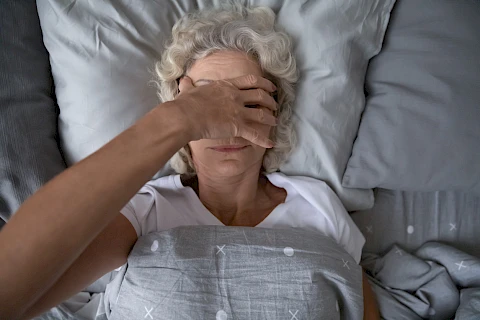
Sleep is more than just a time to rest—it’s a critical component of brain health. For seniors, however, getting enough high-quality sleep often becomes more challenging. May, being Better Sleep Month, provides a timely opportunity to reflect on the connection between chronic sleep problems and increased dementia risk. Recent research has highlighted an undeniable link between insufficient sleep and cognitive decline. Knowing how poor sleep can impact the brain’s function can help seniors and caregivers take proactive steps to safeguard mental health.
Here are five ways chronic sleep deprivation can elevate dementia risk in older adults.
1. Disrupted Memory and Learning Processes
During sleep, the brain consolidates memories and processes information gathered during the day. When sleep is inadequate, this process is interrupted, leading to difficulty recalling details and learning new information. Over time, the cumulative effect of poor sleep can impair long-term memory, which is one of the first cognitive functions to decline in dementia. Seniors who experience regular sleep disruptions may struggle with forgetfulness and difficulty absorbing new information, which can be an early warning sign of more severe cognitive issues.
2. Increased Vulnerability to Cognitive Decline
Chronic sleep deprivation doesn’t just affect memory—it also influences overall brain function. Research shows that inadequate sleep can exacerbate the decline of cognitive abilities, making it harder for seniors to think clearly or make decisions. Sleep is essential for brain maintenance, allowing it to repair and renew neural connections. A lack of sleep over time can prevent this restoration, leaving the brain more vulnerable to deterioration and increasing the likelihood of developing dementia.
3. Impaired Brain Waste Removal
The brain has a unique method of cleaning itself called the glymphatic system, which is most active during sleep. This system clears out toxins and waste products that can build up in the brain, including beta-amyloid, a protein that is commonly found in the brains of people with Alzheimer's disease. When sleep is disrupted or inadequate, this waste removal process is less effective, allowing toxins to accumulate. This buildup of waste may contribute to neurodegeneration and the progression of dementia. Proper sleep is crucial for maintaining this natural cleansing system, and failure to get enough rest may accelerate the onset of cognitive decline.
4. The Impact of Sleep Apnea on Sleep Quality and Brain Health
Sleep disorders, such as sleep apnea, can have a significant impact on both sleep quality and brain health. Sleep apnea is characterized by repeated interruptions in breathing during sleep, causing oxygen levels in the blood to drop and reducing the restorative quality of sleep. These interruptions prevent the brain from entering the deeper, restorative stages of sleep necessary for memory consolidation and neural repair. As a result, sleep apnea increases the risk of cognitive impairment and can hasten the progression of dementia. Seniors with sleep apnea may not experience the full benefits of sleep, making them more susceptible to brain health issues over time.
5. The Vicious Cycle: Poor Sleep and Mental Health
Chronic sleep deprivation can lead to mental health challenges such as anxiety and depression. These conditions, in turn, can further disturb sleep, creating a vicious cycle. Sleep problems can worsen mood disorders, which then make it even harder for seniors to achieve quality rest. Additionally, depression and anxiety are known to exacerbate cognitive decline, which increases the risk of developing dementia. Addressing sleep problems early on is key to preventing the mental and emotional challenges that often accompany poor sleep.
Strategies for Improving Sleep in Seniors
Improving sleep hygiene is an effective way to reduce dementia risk. Here are some strategies that can help seniors get better sleep:
- Create a sleep-friendly environment by keeping the bedroom calm, dark, and quiet.
- Establish a calming pre-bedtime routine, like reading or soft music.
- Keep a regular sleep schedule by going to bed and waking up at the same time each day.
- Limit caffeine and electronics use before bedtime to improve sleep quality.
Make Better Sleep a Priority for Healthier Brain Aging
The impact of poor sleep on brain health is profound, and for seniors, it’s critical to prioritize sleep as part of a holistic approach to well-being. By improving sleep hygiene and addressing sleep disorders, seniors can significantly reduce their risk of cognitive decline and dementia.
If you or a loved one in St. Paul, Roseville, New Brighton, Shoreview, or North Oaks is struggling with sleep issues, contact Senior Helpers Roseville, MN today. Our team is ready to offer support and resources to improve the quality of life and enhance overall health through better sleep practices. Together, we can help ensure a safer, healthier, and more fulfilling future for seniors.